Can a Husky Eat Pasta?
Date Published: February 12, 2024 | Last Modified: February 16, 2024
Before we embark on this flavorful journey, let us debunk a common myth - huskies can indeed enjoy a pasta dish with you. In this article, we delve into the potential health benefits and drawbacks of incorporating pasta into your husky's diet. We will explore the safety considerations involved, including any potential toxicity issues, and whether pasta can be a positive addition to their meals. So, if you've ever wondered about sharing your spaghetti with your furry friend, keep reading to uncover the answers and make an informed decision for your beloved husky's well-being.
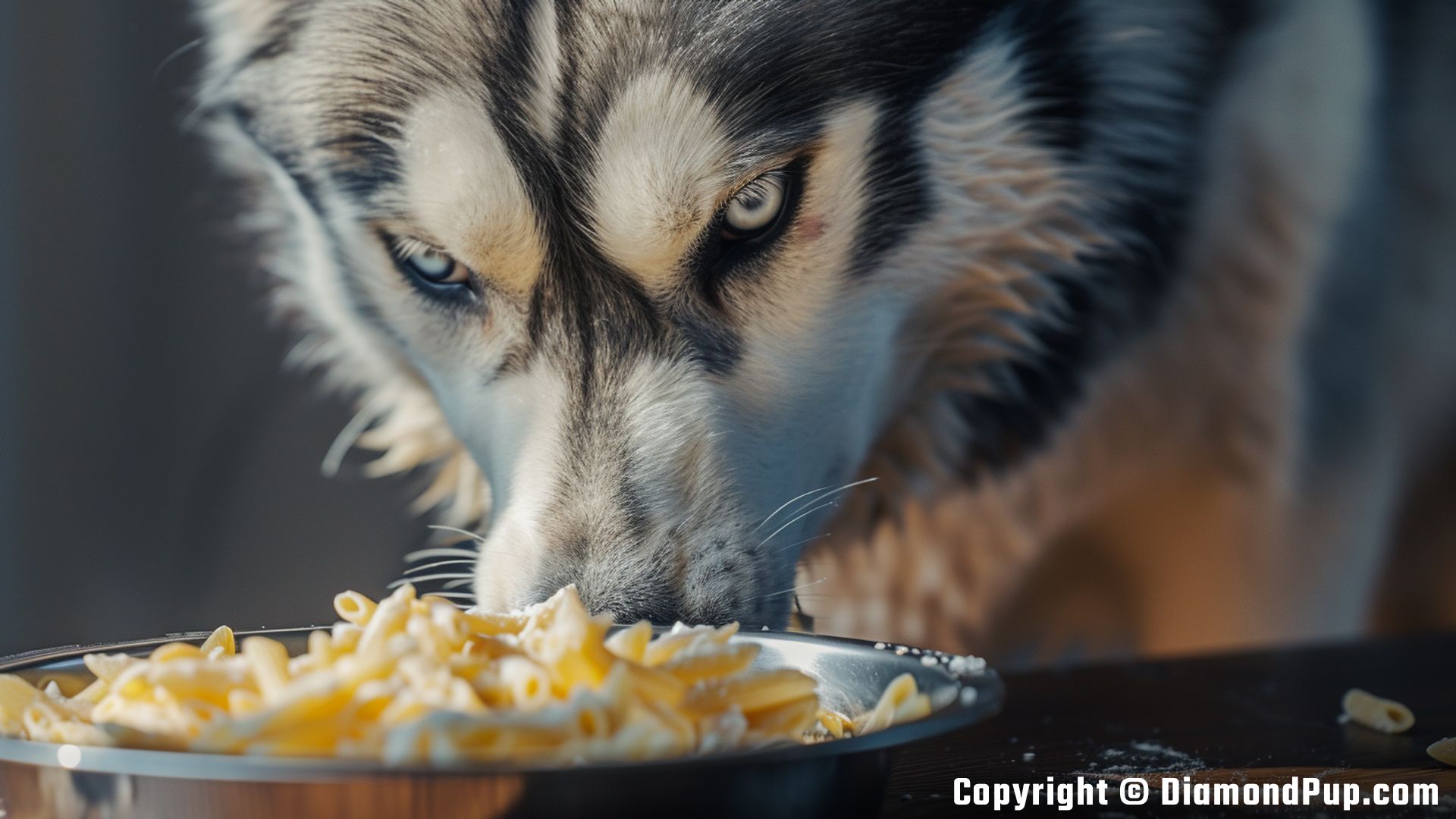
Are Pastas Good for Huskies?
Pastas can be a part of a husky's balanced diet if fed in moderation and with consideration of the specific nutritional needs of the breed. Huskies are active dogs with high energy requirements, so carbohydrates from pasta can provide a good source of energy for them. However, it's essential to choose whole grain or whole wheat pasta over refined pasta to ensure they get enough fiber and nutrients.
Additionally, it's crucial to avoid adding any sauces or seasonings that may be harmful to huskies, such as garlic or onion. Plain cooked pasta without any added ingredients is the safest option for your husky to enjoy as an occasional treat alongside their regular balanced diet of high-quality dog food.
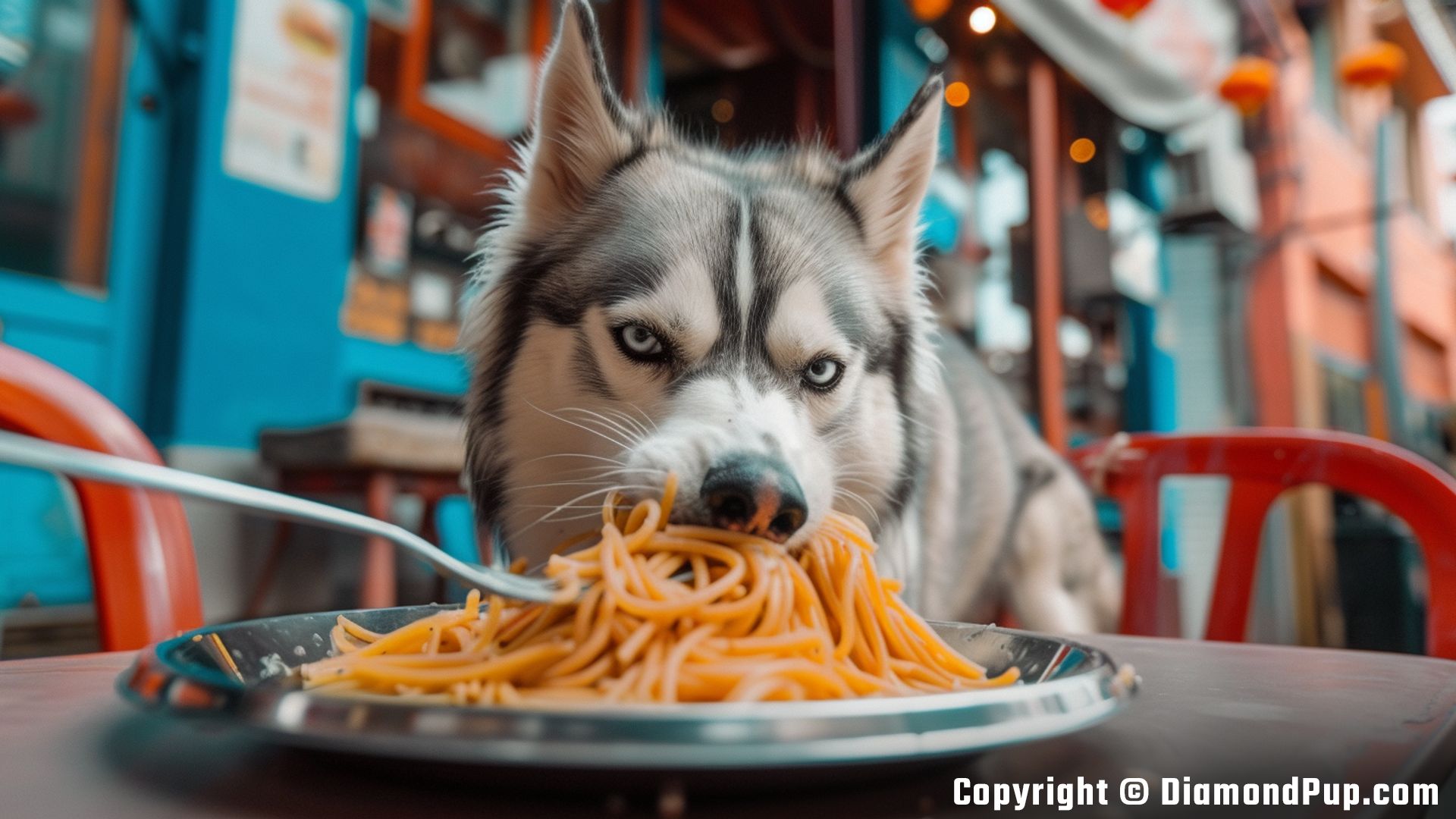
Understanding the Benefits of Pastas for Huskies
When it comes to the benefits of pastas for Huskies, it's important to consider the nutritional value they can provide. Whole grain pastas, such as whole wheat or brown rice pasta, can offer fiber that aids in digestion and helps regulate blood sugar levels in Huskies. Additionally, incorporating vegetables or lean proteins into the pasta dish can further enhance the nutritional content, providing essential vitamins and minerals for your Husky's overall health and well-being.
Furthermore, pastas can be a good source of energy for active Huskies, helping to fuel their daily activities and maintain a healthy weight. However, it's crucial to ensure that the pasta is cooked plain, without any seasonings or sauces that may be harmful to your pet. By selecting the right type of pasta and preparing it appropriately, you can offer your Husky a nutritious and balanced meal to support their optimal health.
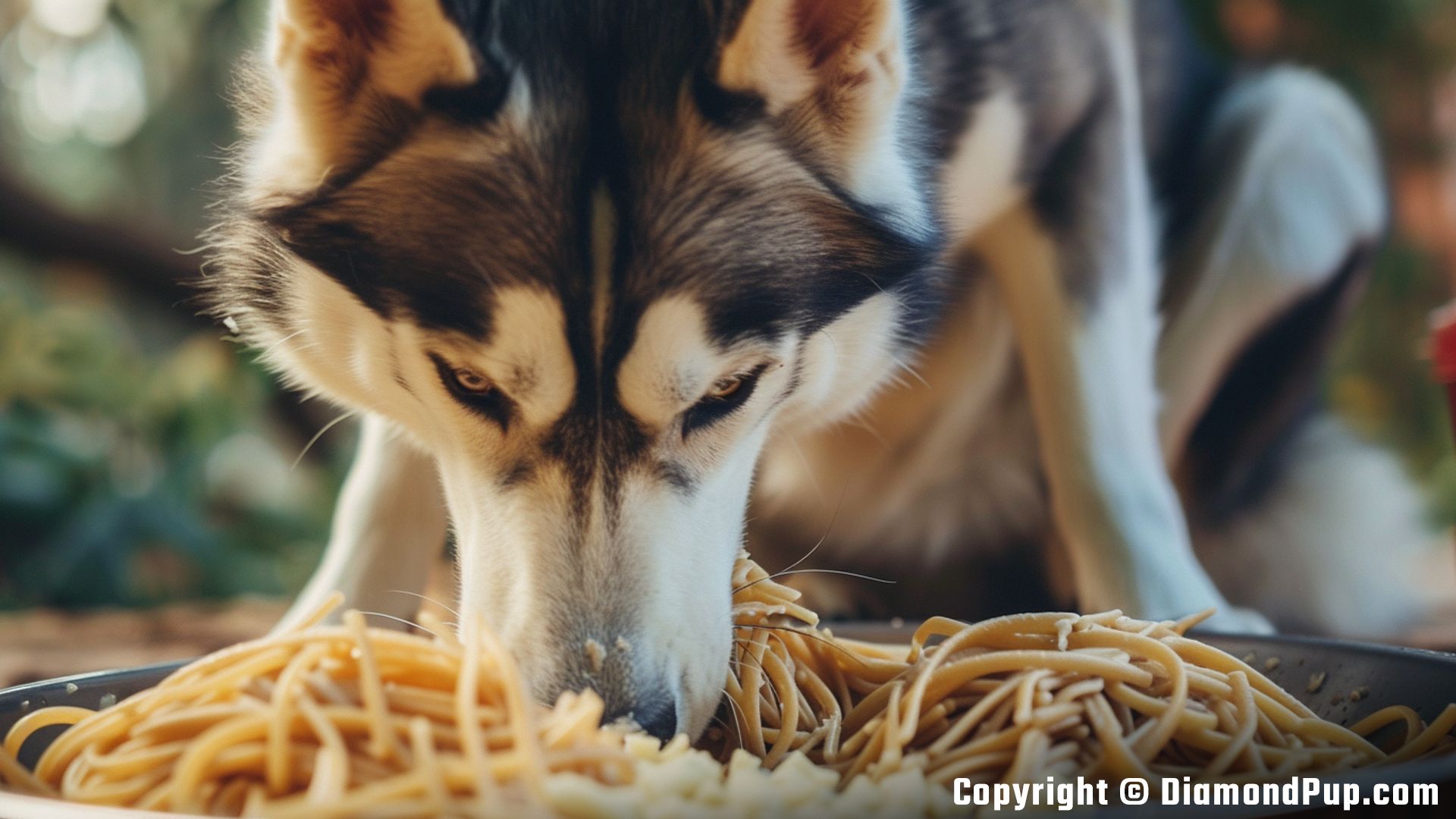
Nutritional benefits of Pastas for Huskies
When it comes to feeding your husky pasta, there are some potential nutritional benefits to consider. Whole wheat pasta, for instance, can provide a good source of complex carbohydrates for sustained energy levels. Additionally, pasta dishes with added vegetables such as spinach, carrots, or peas can offer vitamins, minerals, and fiber that contribute to overall health and wellness for your husky.
However, it's important to remember that pasta should only be given to your husky in moderation as a treat, due to its high carbohydrate content. Excessive consumption of pasta can lead to weight gain and digestive issues in huskies. Always ensure that pasta is cooked plain without any added ingredients like garlic, onions, or excessive salt, as these can be harmful to your husky's health.
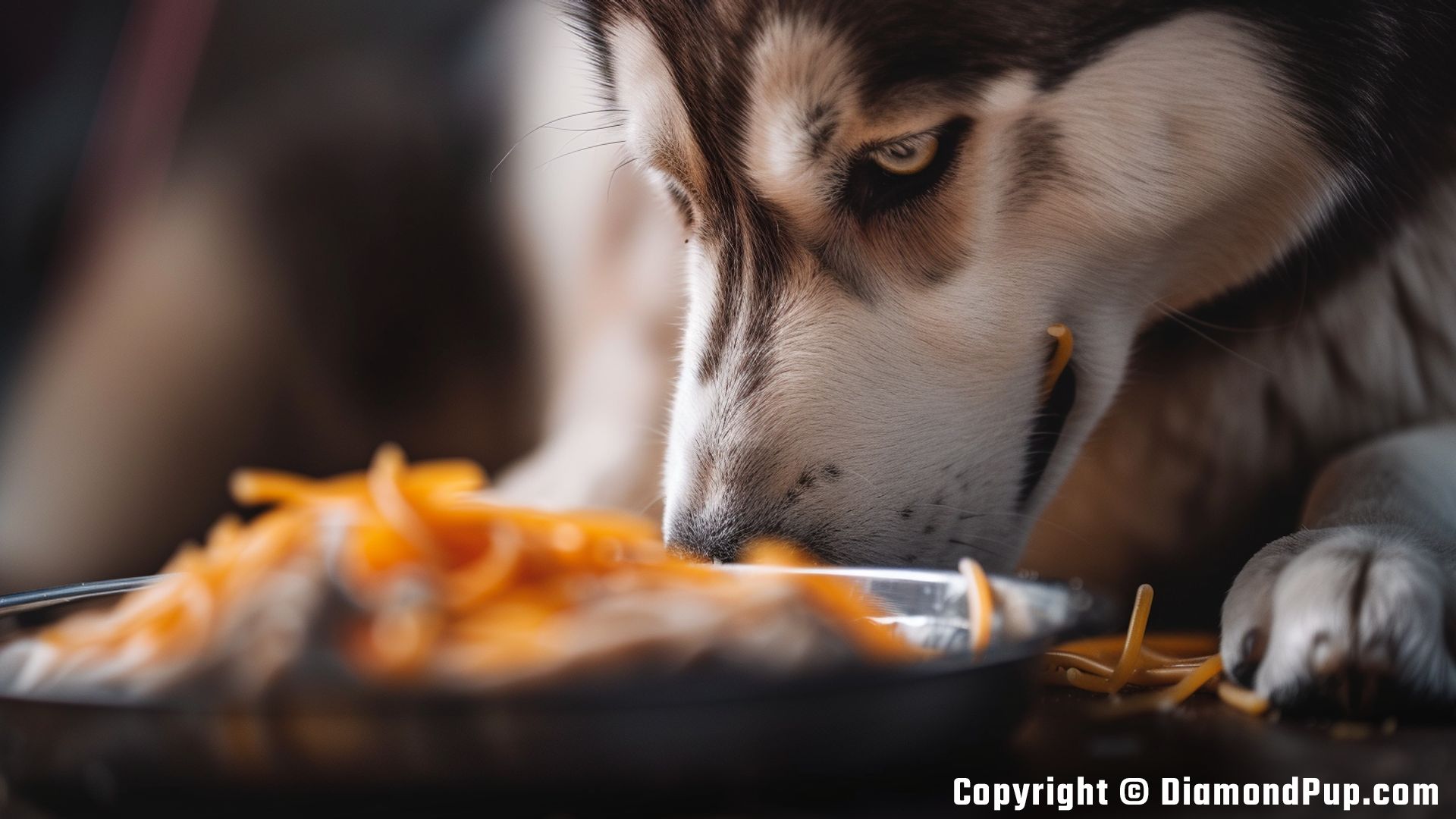
Safely Introducing Pastas to Your Husky's Diet
When introducing pasta to your husky's diet, it's important to start slowly and monitor their response. Begin by offering small amounts of plain, cooked pasta without any seasonings or sauces. This will help you determine if your husky tolerates pasta well and does not experience any gastrointestinal issues such as upset stomach or diarrhea.
Gradually increase the amount of pasta in their diet while balancing it with their regular dog food to ensure they are still receiving all the essential nutrients they need. Remember that pasta should not replace their balanced diet but can be included as an occasional treat or supplemental meal to add variety to their meals.
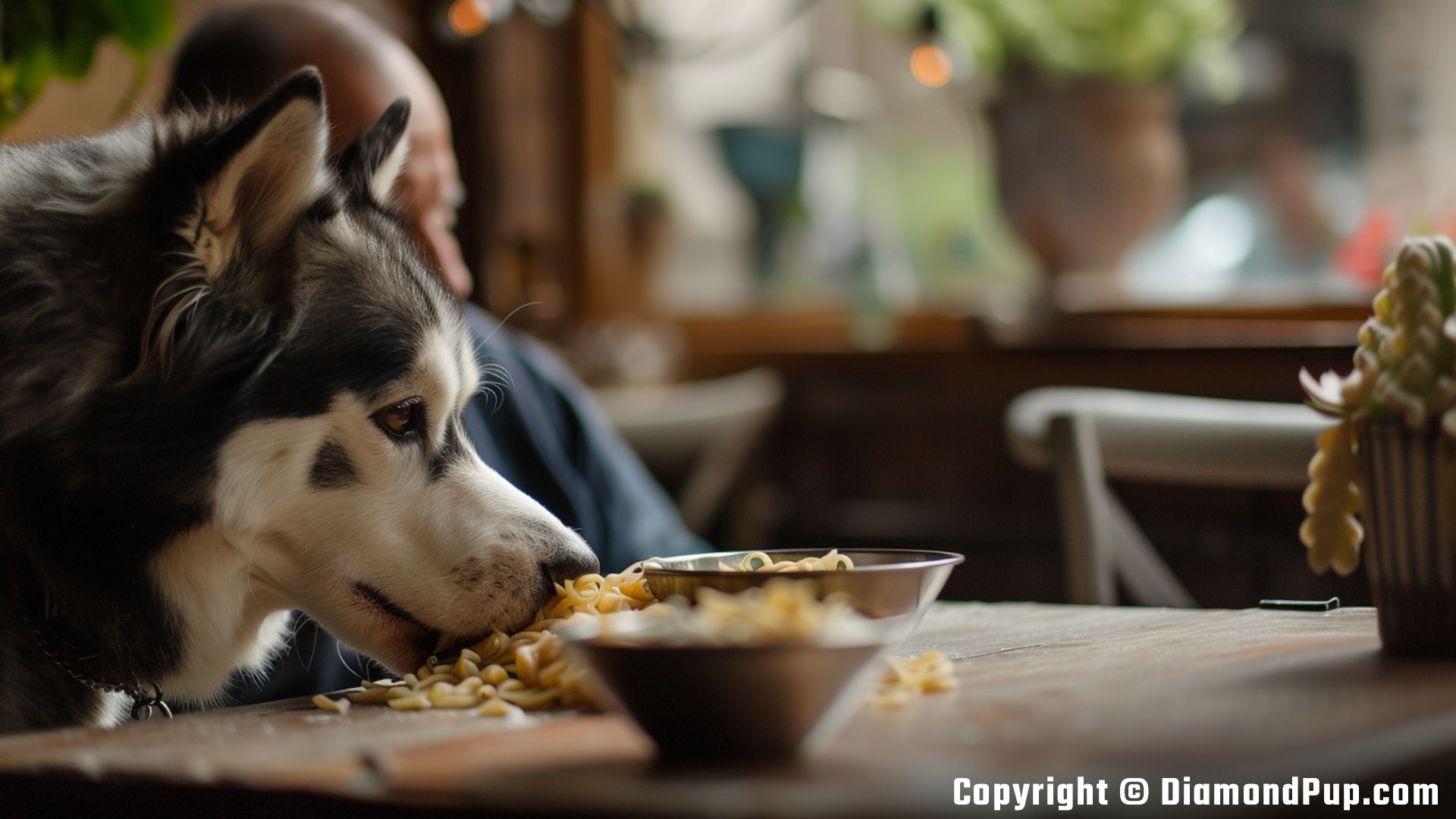
How much pasta can a dog eat safely?
When it comes to feeding pasta to your dog, moderation is key. While it is safe for huskies and can german shepherds eat pasta in small amounts, it should not be a significant portion of their diet. Pasta is high in carbohydrates, which can lead to weight gain if consumed excessively. A safe guideline is to limit pasta to no more than 10% of your dog's daily caloric intake, ensuring that the rest of their diet is balanced with protein, fats, vitamins, and minerals specifically tailored to meet the needs of their specific breed.
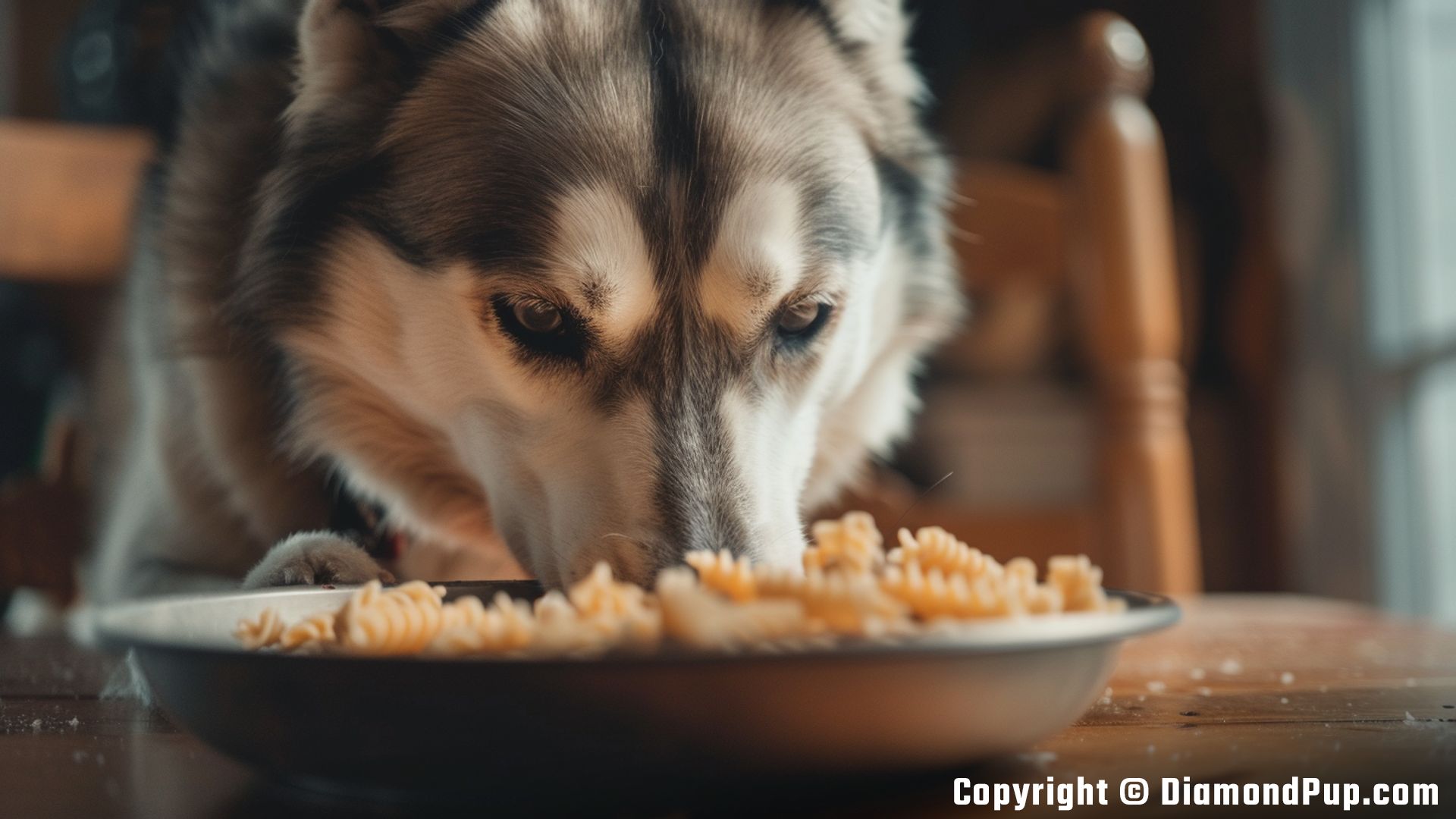
Tips to Remember When Feeding Your Husky Pastas
When feeding your Husky pasta, remember that moderation is key. While pasta can be a safe and enjoyable treat for your furry friend, it should not make up a large portion of their diet. Huskies have specific nutritional requirements that need to be met to ensure their overall health and well-being. Therefore, pasta should be given in small amounts and not as a substitute for their regular balanced diet.
Additionally, when serving pasta to your Husky, opt for whole wheat or grain-free pasta options to provide more fiber and nutrients. Avoid adding any sauces that are high in salt, garlic, or onions, as these ingredients can be harmful to dogs. Always consult with your veterinarian before making any significant changes to your Husky's diet to ensure that their nutritional needs are being met.
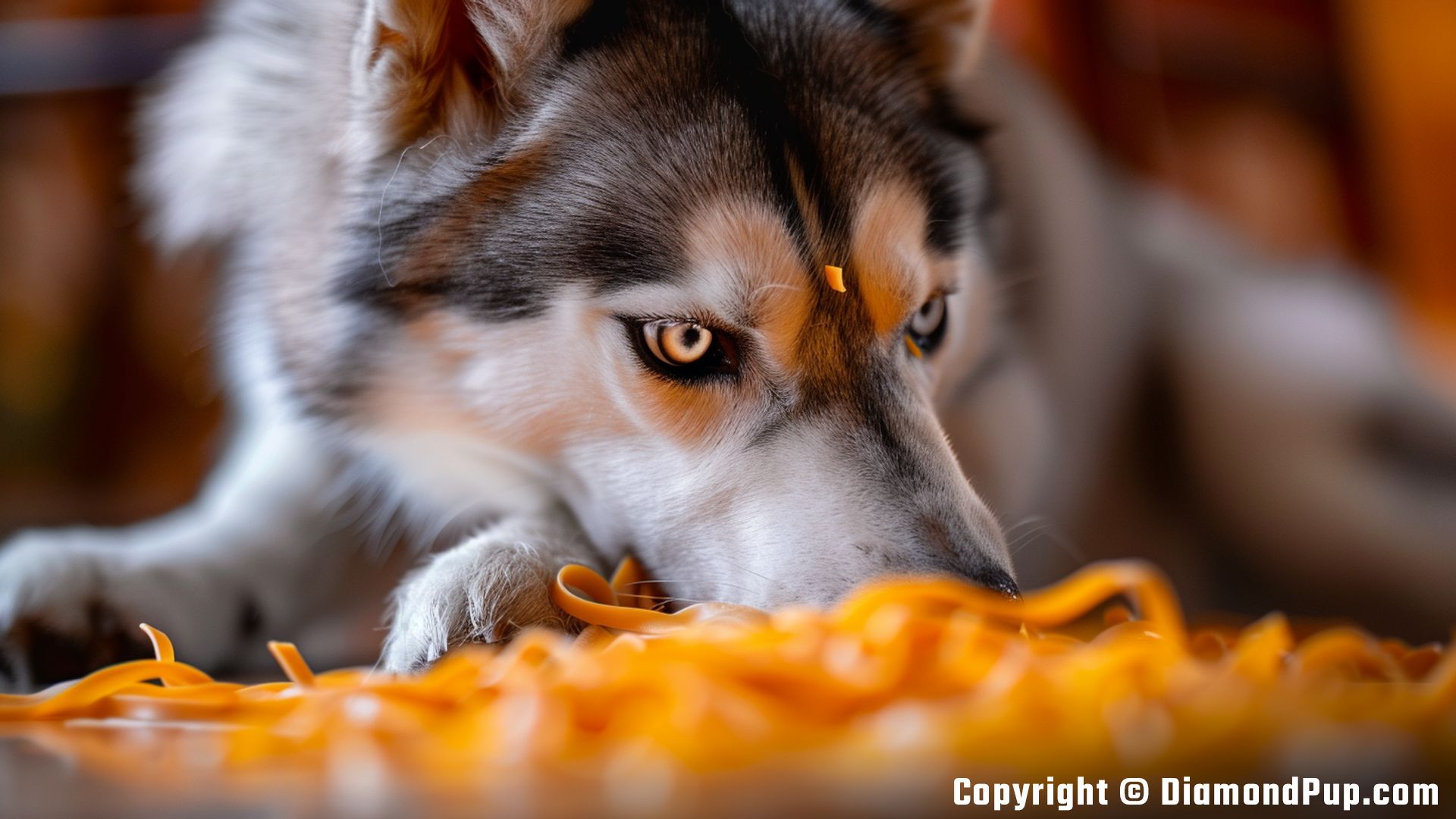
Feeding Your Husky Pastas
When feeding your Husky pasta, it is important to choose the right type of pasta to ensure it aligns with their nutritional needs. Opt for whole grain or whole wheat pasta, as they are higher in fiber and nutrients compared to refined pasta. Additionally, avoid pasta dishes with heavy sauces or seasonings, as they can upset your Husky's stomach.
Remember to serve pasta to your Husky in moderation, as it should not replace their regular balanced diet. Pasta can be a fun and occasional treat for your furry friend, but their primary source of nutrition should come from high-quality dog food specifically formulated for Huskies.
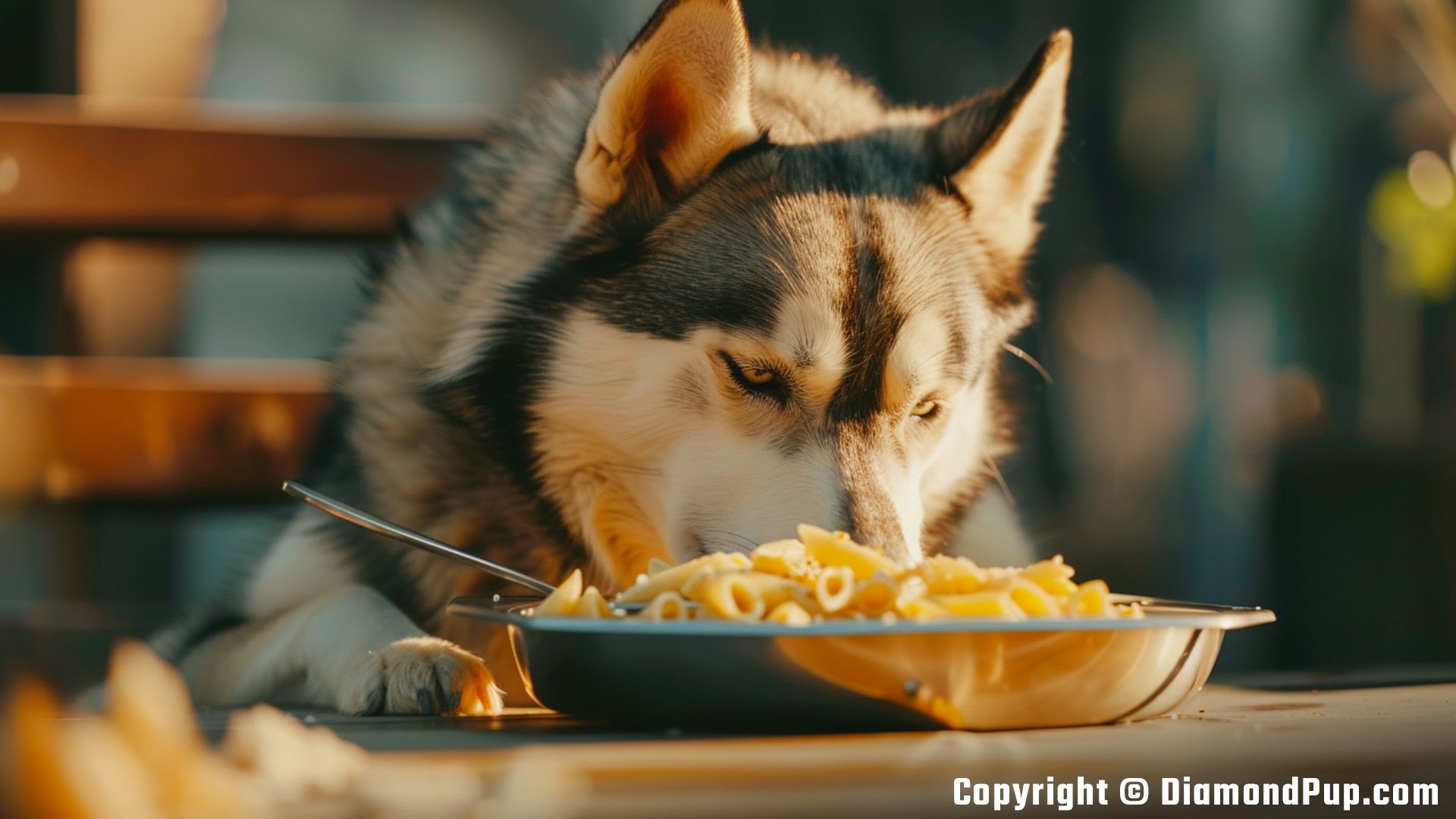
How to properly feed your husky Pastas
When it comes to feeding your husky pasta, it's important to do so in moderation. Pasta can be high in carbohydrates which may lead to weight gain if overfed. Look for whole grain or whole wheat pasta options as they contain more fiber and nutrients compared to regular white pasta. Additionally, avoid adding any sauces or seasonings that are high in salt, as this can be harmful to your husky's health.
When preparing pasta for your husky, make sure to cook it plain without any added oils or fats. Opt for small portions mixed with their regular balanced diet to ensure they're still receiving all the necessary nutrients. Remember, huskies have specific dietary requirements, so always consult with your veterinarian to determine the appropriate amount of pasta to include in their meals.
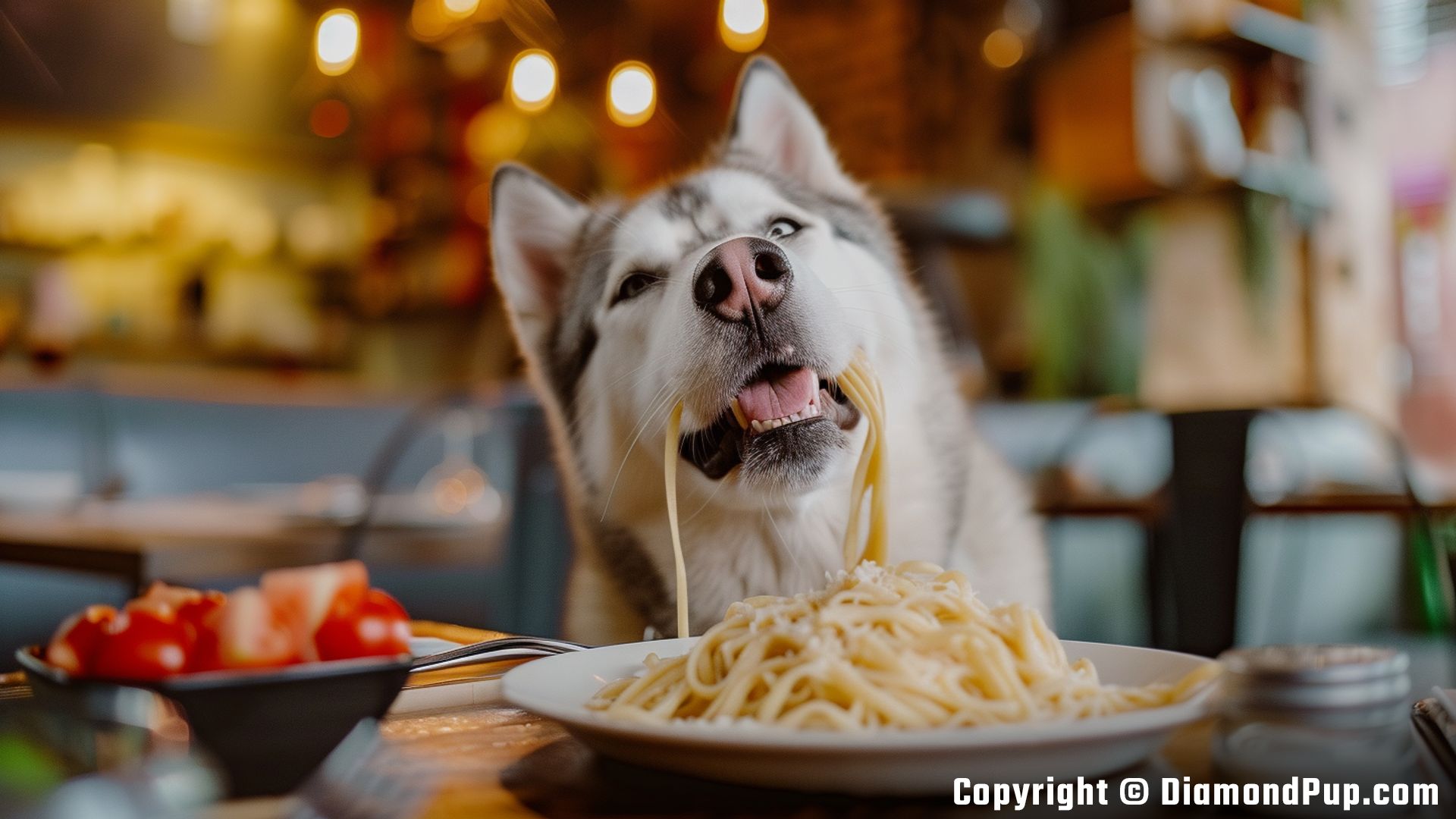
Do Huskies Like Pastas?
As a veterinarian nutritionist with expertise in huskies, I can confidently say that many huskies often enjoy pasta dishes. Due to their high energy levels and active nature, huskies can benefit from the carbohydrates found in pasta, which can provide a quick source of energy. However, it's essential to feed pasta to huskies in moderation, alongside a balanced diet specific to their breed's nutritional needs.
When choosing pasta for your husky, opt for whole grain or gluten-free varieties to ensure they receive essential nutrients and avoid potential digestive issues. Additionally, consider mixing the pasta with lean proteins, such as cooked chicken or beef, and vegetables like carrots or green beans to create a well-rounded meal that your husky will love.
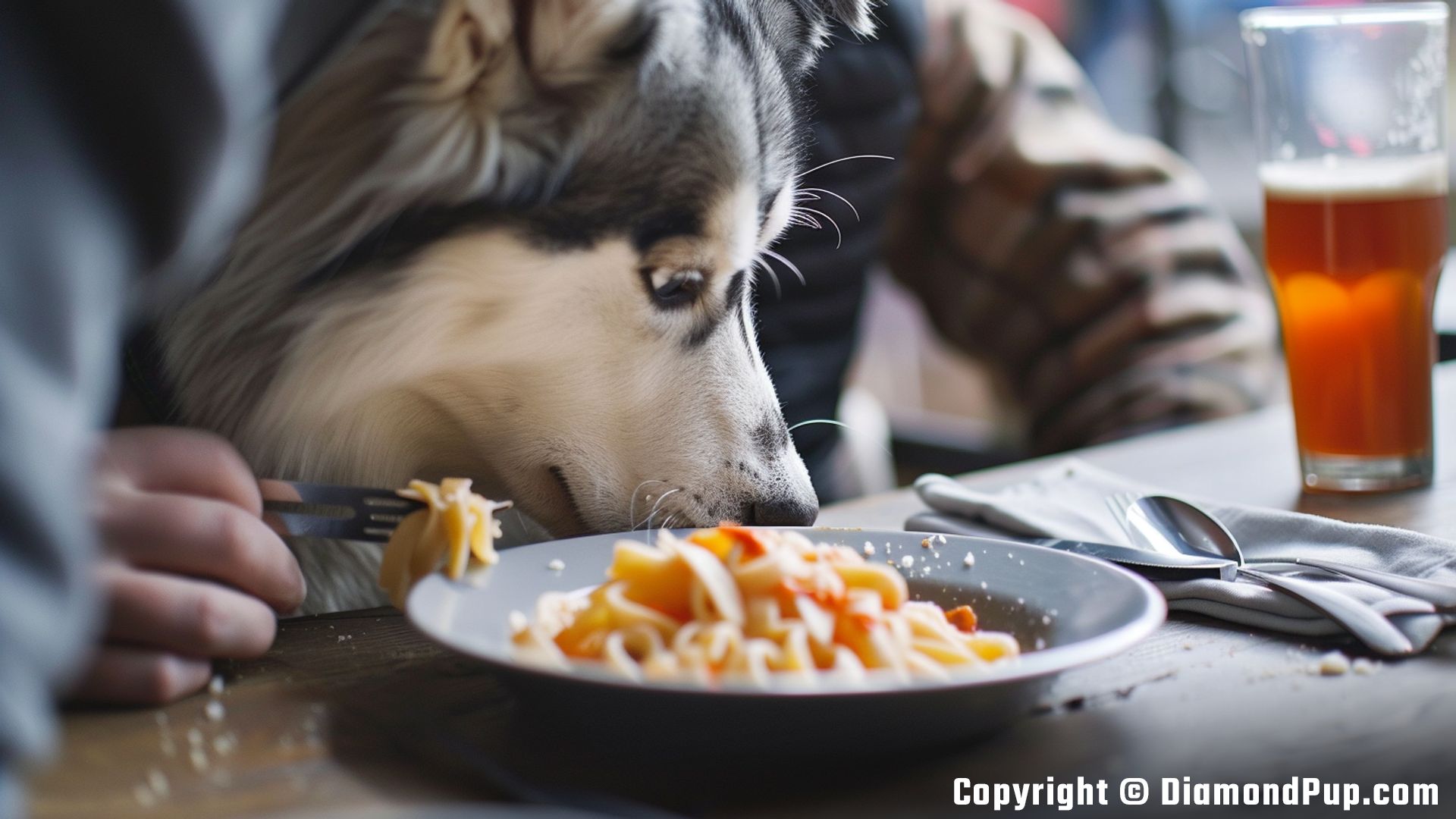
Special Consideration for Huskies
When it comes to feeding pasta to your husky, there are a few special considerations to keep in mind. Huskies are known for their high energy levels and need for a protein-rich diet. Therefore, when offering pasta as a treat or occasional meal, it's important to ensure that it doesn't displace any essential nutrients in their diet. Opt for whole grain pasta to provide fiber and complex carbohydrates, which can help sustain your husky's energy levels throughout the day.
Additionally, be cautious with pasta sauces as they can be high in sodium and other additives that may not sit well with your husky's sensitive stomach. Plain, cooked pasta without any seasonings or sauces is the safest option to avoid any gastrointestinal upset. Remember, moderation is key when introducing any new food into your husky's diet, including pasta.
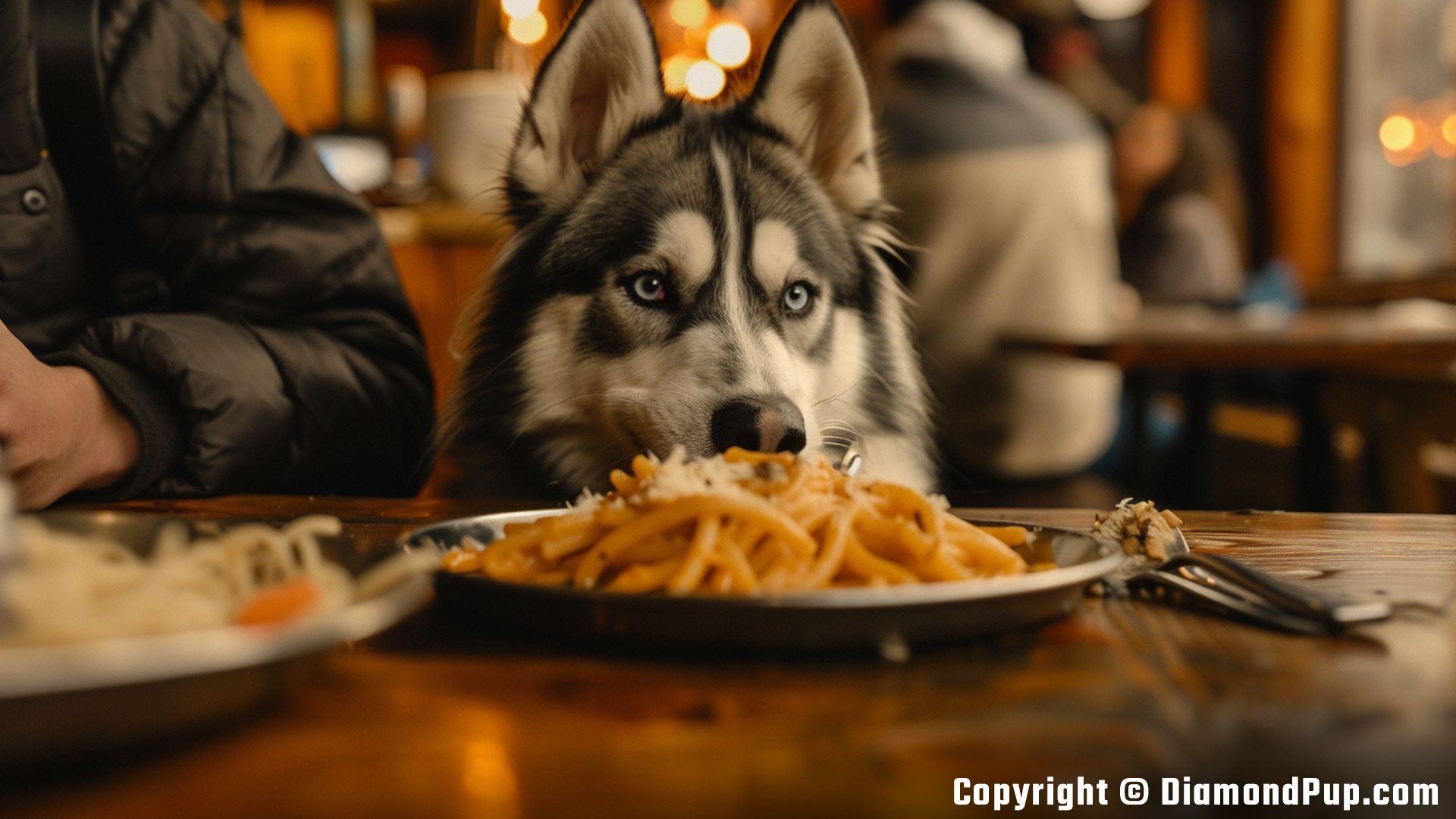
Can Puppies Have Pastas?
As a veterinarian nutritionist with a focus on huskies, I recommend being cautious when feeding pasta to husky puppies. While cooked pasta can be a safe occasional treat for adult huskies, puppies have specific dietary needs for their growth and development. Husky puppies require a diet that is balanced and specifically formulated for their age to ensure they receive the right amount of nutrients for healthy bone and muscle development.
If you do choose to offer pasta to your husky puppy, it should only be in small amounts as an occasional treat, and it should not replace their regular puppy food. Always ensure that the pasta is plain and cooked without any seasoning or sauces that could upset their delicate digestive system. Additionally, monitor your puppy for any signs of digestive upset or intolerance after consuming pasta, and consult with your veterinarian if you have any concerns about their diet.

Are there any Huskies that shouldn't eat Pastas?
While pasta can be a safe and enjoyable occasional treat for most huskies, there are some individuals within this breed that may not tolerate it well. Huskies with certain health conditions such as obesity, diabetes, or food allergies may need to avoid pasta due to its high carbohydrate content. Carbohydrates can cause spikes in blood sugar levels, which may be problematic for huskies with diabetes. Additionally, huskies with food allergies may experience adverse reactions to the ingredients commonly found in pasta, such as wheat or gluten.
It is crucial to consult with your veterinarian before introducing pasta or any new food into your husky's diet, especially if they have underlying health issues. Your vet can provide personalized recommendations based on your husky's individual needs and help you make informed decisions to promote their overall health and wellbeing.
Recipes for Feeding Your Husky Pastas
When it comes to feeding your husky pasta, it's important to choose the right type of pasta that provides a balance of nutrients. Opt for whole wheat or grain-based pasta, as they contain more fiber and essential nutrients compared to white pasta. Additionally, consider adding lean proteins such as cooked chicken or turkey to the pasta dish to enhance its nutritional value for your husky.
Avoid using pasta sauces that are high in sodium, spices, or garlic, as these can be harmful to your husky's digestive system. Instead, you can mix the pasta with a small amount of olive oil or plain low-sodium broth for added flavor. Remember, moderation is key when incorporating pasta into your husky's diet, so be sure to consult with your veterinarian to ensure you are providing a balanced and healthy meal for your furry friend.
Alternatives to Pastas for Huskies
While pasta can be a safe and enjoyable treat for huskies in moderation, there are also healthier alternatives to consider incorporating into their diet. One excellent option is cooked quinoa, which is a nutrient-rich whole grain that provides a good source of protein and fiber for your husky. Another great alternative is sweet potatoes, which are packed with vitamins, minerals, and fiber, making them an excellent addition to your husky's meals.
Remember, variety is key when it comes to your husky's diet, so feel free to get creative with different options like steamed broccoli, lean cuts of cooked meat, or even fruits like blueberries or apples (minus the seeds). Always consult with your veterinarian or a pet nutritionist to ensure that any new foods you introduce are safe and balanced for your husky's specific needs and dietary requirements.
Common Questions About Huskies and Pastas
One common question that arises when considering feeding pasta to huskies is whether it provides any nutritional value for this breed. While pasta is not considered a vital part of a husky's diet, it can still offer some benefits when consumed in moderation. Pasta is a good source of carbohydrates, which can provide a quick energy boost for active huskies. However, it should not replace their primary diet, which should consist of high-quality dog food specifically formulated for huskies.
Another important consideration is the type of pasta being offered to huskies. Opt for plain cooked pasta without any added sauces, spices, or seasonings. Avoid giving them pasta dishes that contain ingredients like garlic, onions, or tomatoes, as these can be harmful to dogs. Additionally, be mindful of the portion size to prevent overfeeding and potential weight gain in your husky.
Subscribe Now
Stay updated with the latest news and articles! We'll keep you updated on the latest tips for your pet Husky
